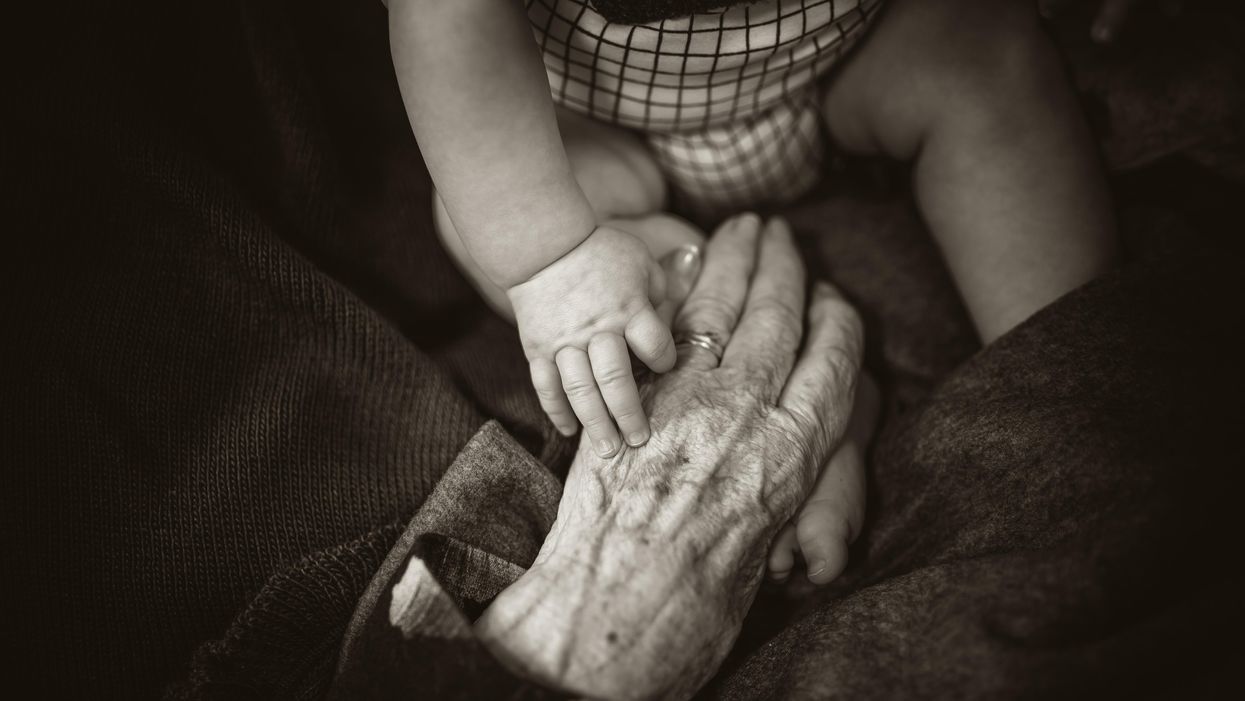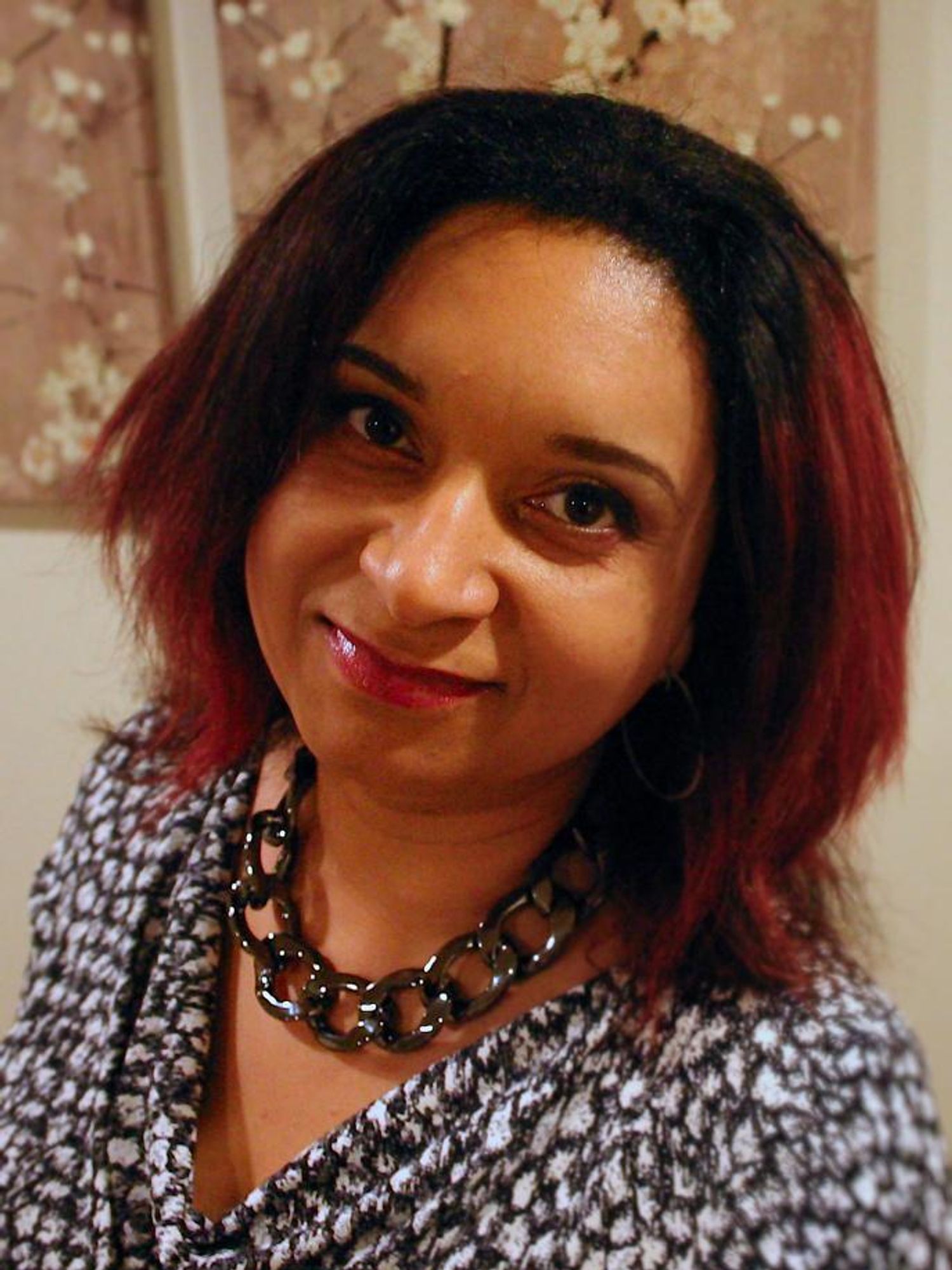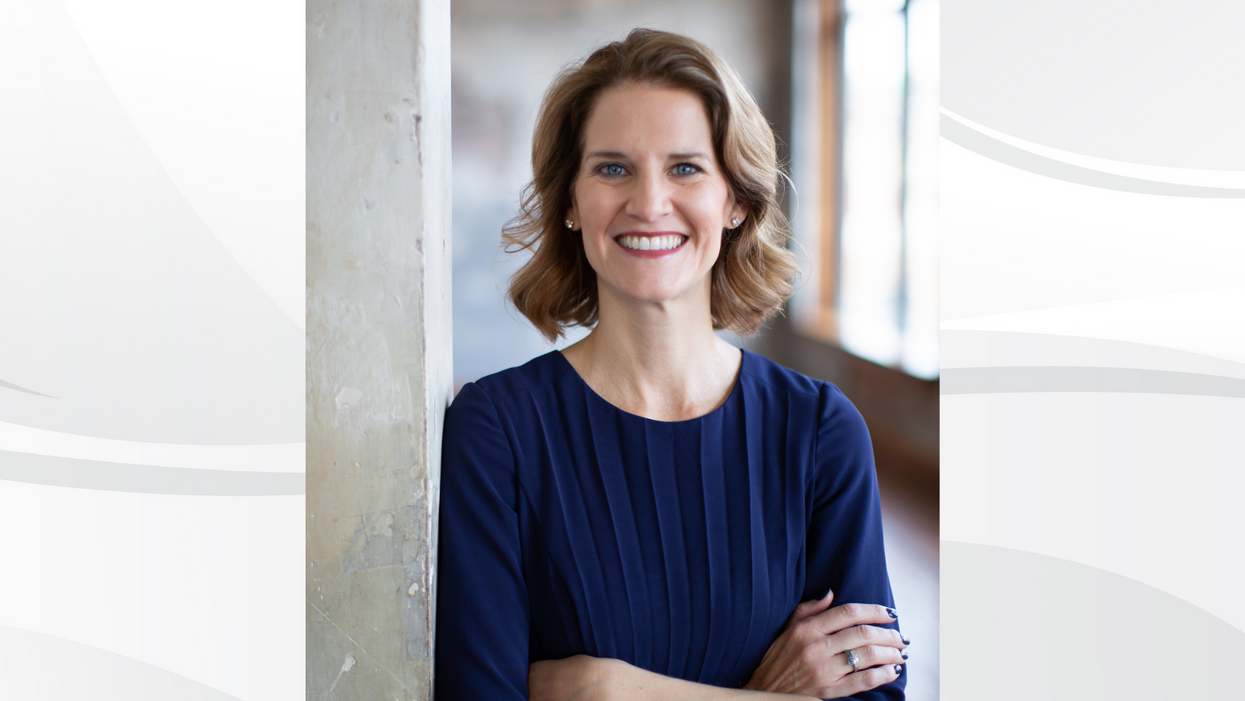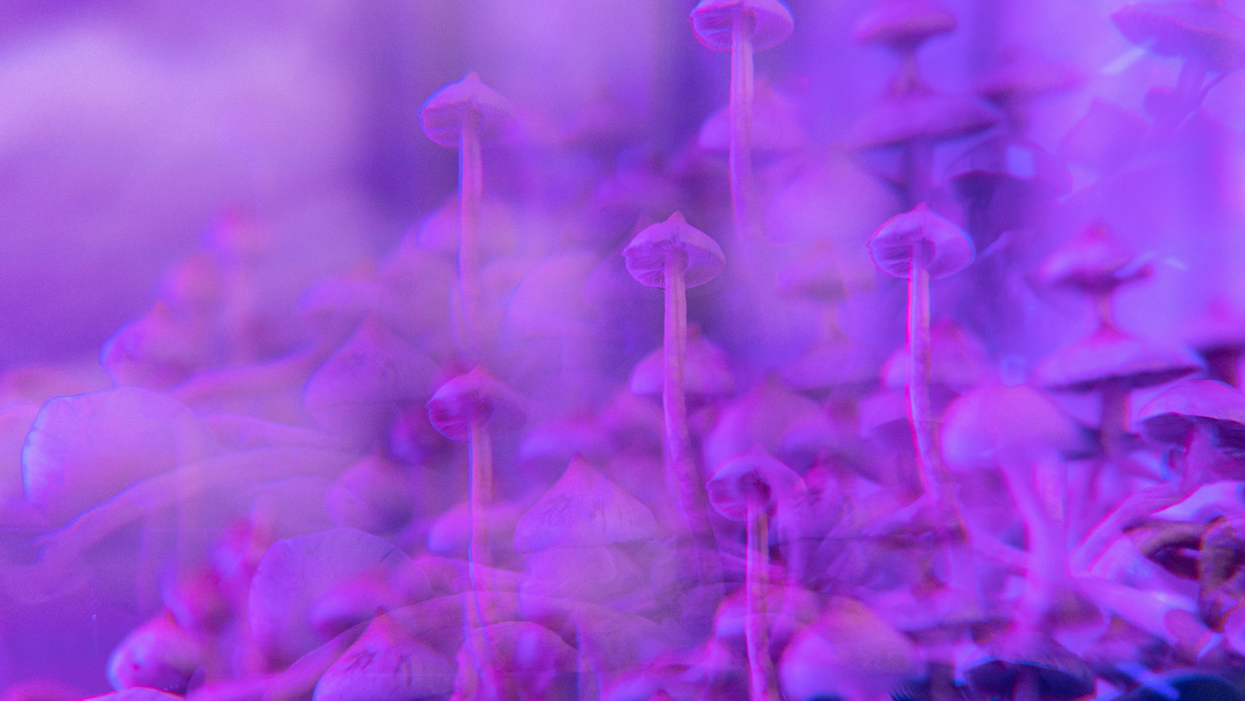Technology is Redefining the Age of 'Older Mothers'

Scientists are working on technologies that would enable more 70-year-old women to have babies.
In October 2021, a woman from Gujarat, India, stunned the world when it was revealed she had her first child through in vitro fertilization (IVF) at age 70. She had actually been preceded by a compatriot of hers who, two years before, gave birth to twins at the age of 73, again with the help of IVF treatment. The oldest known mother to conceive naturally lived in the UK; in 1997, Dawn Brooke conceived a son at age 59.
These women may seem extreme outliers, almost freaks of nature; in the US, for example, the average age of first-time mothers is 26. A few decades from now, though, the sight of 70-year-old first-time mothers may not even raise eyebrows, say futurists.
“We could absolutely have more 70-year-old mothers because we are learning how to regulate the aging process better,” says Andrew Hessel, a microbiologist and geneticist, who cowrote "The Genesis Machine," a book about “rewriting life in the age of synthetic biology,” with Amy Webb, the futurist who recently wondered why 70-year-old women shouldn’t give birth.
Technically, we're already doing this, says Hessel, pointing to a technique known as in vitro gametogenesis (IVG). IVG refers to turning adult cells into sperm or egg cells. “You can think of it as the upgrade to IVF,” Hessel says. These vanguard stem cell research technologies can take even skin cells and turn them into induced pluripotent stem cells (iPSCs), which are basically master cells capable of maturing into any human cell, be it kidney cells, liver cells, brain cells or gametes, aka eggs and sperm, says Henry T. “Hank” Greely, a Stanford law professor who specializes in ethical, legal, and social issues in biosciences.
Mothers over 70 will be a minor blip, statistically speaking, Greely predicts.
In 2016, Greely wrote "The End of Sex," a book in which he described the science of making gametes out of iPSCs in detail. Greely says science will indeed enable us to see 70-year-old new mums fraternize with mothers several decades younger at kindergartens in the (not far) future. And it won’t be that big of a deal.
“An awful lot of children all around the world have been raised by grandmothers for millennia. To have 70-year-olds and 30-year-olds mingling in maternal roles is not new,” he says. That said, he doubts that many women will want to have a baby in the eighth decade of their life, even if science allows it. “Having a baby and raising a child is hard work. Even if 1% of all mothers are over 65, they aren’t going to change the world,” Greely says. Mothers over 70 will be a minor blip, statistically speaking, he predicts. But one thing is certain: the technology is here.
And more technologies for the same purpose could be on the way. In March 2021, researchers from Monash University in Melbourne, Australia, published research in Nature, where they successfully reprogrammed skin cells into a three-dimensional cellular structure that was morphologically and molecularly similar to a human embryo–the iBlastoid. In compliance with Australian law and international guidelines referencing the “primitive streak rule," which bans the use of embryos older than 14 days in scientific research, Monash scientists stopped growing their iBlastoids in vitro on day 11.
“The research was both cutting-edge and controversial, because it essentially created a new human life, not for the purpose of a patient who's wanting to conceive, but for basic research,” says Lindsay Wu, a senior lecturer in the School of Medical Sciences at the University of New South Wales (UNSW), in Kensington, Australia. If you really want to make sure what you are breeding is an embryo, you need to let it develop into a viable baby. “This is the real proof in the pudding,'' says Wu, who runs UNSW’s Laboratory for Ageing Research. Then you get to a stage where you decide for ethical purposes you have to abort it. “Fiddling here a bit too much?” he asks. Wu believes there are other approaches to tackling declining fertility due to older age that are less morally troubling.
He is actually working on them. Why would it be that women, who are at peak physical health in almost every other regard, in their mid- to late- thirties, have problems conceiving, asked Wu and his team in a research paper published in 2020 in Cell Reports. The simple answer is the egg cell. An average girl in puberty has between 300,000 and 400,000 eggs, while at around age 37, the same woman has only 25,000 eggs left. Things only go downhill from there. So, what torments the egg cells?
The UNSW team found that the levels of key molecules called NAD+ precursors, which are essential to the metabolism and genome stability of egg cells, decline with age. The team proceeded to add these vitamin-like substances back into the drinking water of reproductively aged, infertile lab mice, which then had babies.
“It's an important proof of concept,” says Wu. He is investigating how safe it is to replicate the experiment with humans in two ongoing studies. The ultimate goal is to restore the quality of egg cells that are left in patients in their late 30s and early- to mid-40s, says Wu. He sees the goal of getting pregnant for this age group as less ethically troubling, compared to 70-year-olds.
But what is ethical, anyway? “It is a tricky word,” says Hessel. He differentiates between ethics, which represent a personal position and may, thus, be more transient, and morality, longer lasting principles embraced across society such as, “Thou shalt not kill.” Unprecedented advances often bring out fear and antagonism until time passes and they just become…ordinary. When IVF pioneer Landrum Shettles tried to perform IVF in 1973, the chairman of Columbia’s College of Physicians and Surgeons interdicted the procedure at the last moment. Almost all countries in the world have IVF clinics today, and the global IVF services market is clearly a growth industry.
Besides, you don’t have a baby at 70 by accident: you really want it, Greely and Hessel agree. And by that age, mothers may be wiser and more financially secure, Hessel says (though he is quick to add that even the pregnancy of his own wife, who had her child at 40, was a high-risk one).
As a research question, figuring out whether older mothers are better than younger ones and vice-versa entails too many confounding variables, says Greely. And why should we focus on who’s the better mother anyway? “We've had 70-year-old and 80-year-old fathers forever–why should people have that much trouble getting used to mothers doing the same?” Greely wonders. For some women having a child at an old(er) age would be comforting; maybe that’s what matters.
And the technology to enable older women to have children is already here or coming very soon. That, perhaps, matters even more. Researchers have already created mice–and their offspring–entirely from scratch in the lab. “Doing this to produce human eggs is similar," says Hessel. "It is harder to collect tissues, and the inducing cocktails are different, but steady advances are being made." He predicts that the demand for fertility treatments will keep financing research and development in the area. He says that big leaps will be made if ethical concerns don’t block them: it is not far-fetched to believe that the first baby produced from lab-grown eggs will be born within the next decade.
In an op-ed in 2020 with Stat, Greely argued that we’ve already overcome the technical barrier for human cloning, but no one's really talking about it. Likewise, scientists are also working on enabling 70-year-old women to have babies, says Hessel, but most commentators are keeping really quiet about it. At least so far.
"Making Sense of Science" is a monthly podcast that features interviews with leading medical and scientific experts about the latest developments and the big ethical and societal questions they raise. This episode is hosted by science and biotech journalist Emily Mullin, summer editor of the award-winning science outlet Leaps.org.
Listen to the episode:
Meet the Psychologist Using Psychedelics to Treat Racial Trauma
Monnica Williams was stuck. The veteran psychologist wanted to conduct a study using psychedelics, but her university told her they didn't have the expertise to evaluate it via an institutional review board, which is responsible for providing ethical and regulatory oversight for research that involves human participants. Instead, they directed her to a hospital, whose reviewers turned it down, citing research of a banned substance as unethical.
"I said, 'We're not using illegal psilocybin, we're going through Health Canada,'" Williams said. Psilocybin was banned in Canada in 1974, but can now be obtained with an exemption from Health Canada, the federal government's health policy department. After learning this, the hospital review board told Williams they couldn't review her proposal because she's not affiliated with the hospital, after all.
It's all part of balancing bureaucracy with research goals for Williams, a leading expert on racial trauma and psychedelic medicine, as well as obsessive compulsive disorder (OCD), at the University of Ottawa. She's exploring the use of hallucinogenic substances like MDMA and psilocybin — commonly known as ecstasy and magic mushrooms, respectively — to help people of color address the psychological impacts of systemic racism. A prolific researcher, Williams also works as an expert witness, offering clinical evaluations for racial trauma cases.
Scientists have long known that psychedelics produce an altered state of consciousness and openness to new perspectives. For people with mental health conditions who haven't benefited from traditional therapy, psychedelics may be able to help them discover what's causing their pain or trauma, including racial trauma—the mental and emotional injury spurred by racial bias.
"Using psychedelics can not only bring these pain points to the surface for healing, but can reduce the anxiety or response to these memories and allow them to speak openly about them without the pain they bring," Williams says. Her research harnesses the potential of psychedelics to increase neuroplasticity, which includes the brain's ability to build new pathways.
"People of color are dealing with racism all the time, in large and small ways, and even dealing with racism in healthcare, even dealing with racism in therapy."
But she says therapists of color aren't automatically equipped to treat racial trauma. First, she notes, people of color are "vastly underrepresented in the mental health workforce." This is doubly true in psychedelic-assisted psychotherapy, in which a person is guided through a psychedelic session by a therapist or team of therapists, then processes the experience in subsequent therapy sessions.
"On top of that, the therapists of color are getting the same training that the white therapists are getting, so it's not even really guaranteed that they're going to be any better at helping a person that may have racial trauma emerging as part of their experience," she says.
In her own training to become a clinical psychologist at the University of Virginia, Williams says she was taught "how to be a great psychologist for white people." Yet even people of color, she argues, need specialized training to work with marginalized groups, particularly when it comes to MDMA, psilocybin and other psychedelics. Because these drugs can lower natural psychological defense mechanisms, Williams says, it's important for providers to be specially trained.
"People of color are dealing with racism all the time, in large and small ways, and even dealing with racism in healthcare, even dealing with racism in therapy. So [they] generally develop a lot of defenses and coping strategies to ward off racism so that they can function." she says. This is particularly true with psychedelic-assisted psychotherapy: "One possibility is that you're going to be stripped of your defenses, you're going to be vulnerable. And so you have to work with a therapist who is going to understand that and not enact more racism in their work with you."
Williams has struggled to find funding and institutional approval for research involving psychedelics, or funding for investigations into racial trauma or the impacts of conditions like OCD and post-traumatic stress disorder (PTSD) in people of color. With the bulk of her work focusing on OCD, she hoped to focus on people of color, but found there was little funding for that type of research. In 2020, that started to change as structural racism garnered more media attention.
After the killing of George Floyd, a 46-year-old Black man, by a white police officer in May 2020, Williams was flooded with media requests. "Usually, when something like that happens, I get contacted a lot for a couple of weeks, and it dies off. But after George Floyd, it just never did."

Monnica Williams, clinical psychologist at the University of Ottawa
Williams was no stranger to the questions that soon blazed across headlines: How can we mitigate microaggressions? How do race and ethnicity impact mental health? What terms should we use to discuss racial issues? What constitutes an ally, and why aren't there more of them? Why aren't there more people of color in academia, and so many other fields?
Now, she's hoping that the increased attention on racial justice will mean more acceptance for the kind of research she's doing.
In fact, Williams herself has used psychedelics in order to gain a better understanding of how to use them to treat racial trauma. In a study published in January, she and two other Black female psychotherapists took MDMA in a supervised setting, guided by a team of mental health practitioners who helped them process issues that came up as the session progressed. Williams, who was also the study's lead author, found that participants' experiences centered around processing and finding release from racial identities, and, in one case, of simply feeling wholly human without the burden of racial identity for the first time.
The purpose of the study was twofold: to understand how Black women react to psychedelics and to provide safe, firsthand, psychedelic experiences to Black mental health practitioners. One of the other study participants has since gone on to offer psychedelic-assisted psychotherapy to her own patients.
Psychedelic research, and psilocybin in particular, has become a hot topic of late, particularly after Oregon became the first state to legalize it for therapeutic use last November. A survey-based, observational study with 313 participants, published in 2020, paved the way for Williams' more recent MDMA experiments by describing improvements in depression, anxiety and racial trauma among people of color who had used LSD, psilocybin or MDMA in a non-research setting.
Williams and her team included only respondents who reported a moderate to strong psychoactive effect of past psychedelic consumption and believed these experiences provided "relief from the challenging effects of ethnic discrimination." Participants reported a memorable psychedelic experience as well as its acute and lasting effects, completing assessments of psychological insight, mystical experience and emotional challenges experienced during psychedelic experience, then describing their mental health — including depression, anxiety and trauma symptoms — before and after that experience.
Still, Williams says addressing racism is much more complex than treating racial trauma. "One of the questions I get asked a lot is, 'How can Black people cope with racism?' And I don't really like that question," she says. "I think it's important and I don't mind answering it, but I think the more important question is, how can we end racism? What can Black people do to stop racism that's happening to them and what can we do as a society to stop racism? And people aren't really asking this question."

